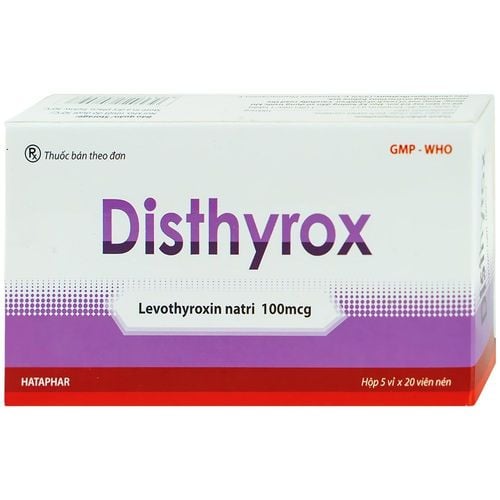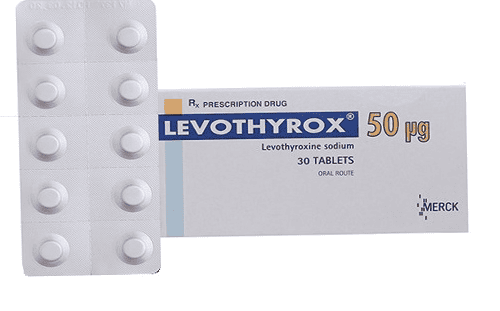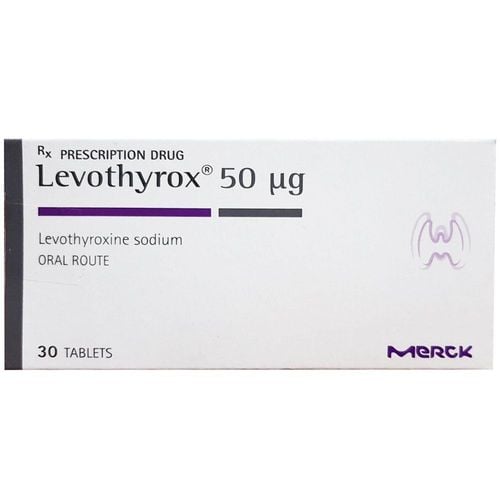This is an automatically translated article.
The article was written by Specialist II Doctor Nguyen Xuan Thang - Department of Medical Examination & Internal Medicine - Vinmec Central Park International General HospitalHashimoto's thyroiditis is a condition in which a lot of lymphocytes are infiltrated, the thyroid has fibrosis, atrophy of thyroid cells, and the presence of many strong eosinophils. There are many causes of thyroiditis.
However, the most common cause is the body's immune system attacking causing chronic inflammation of thyroid cells. The results can lead to elevated thyroid hormone levels (hyperthyroid phase), a period of thyroid hormone levels within normal limits (parathyroid phase), and then a period of hypothyroidism. thyroid hormone (hypothyroid phase).
1. Epidemiology
The American Association of Clinical Endocrinologists estimates that Hashimoto's thyroiditis affects about 14 million Americans. Hashimoto's thyroiditis is considered the most common cause of hypothyroidism. The prevalence of hypothyroidism due to Hashimoto's thyroiditis develops about 5% per year.
The disease occurs more often in women (90%), usually 7-8 times more often than in men. The disease occurs at any age, but is common between 30-60 years of age, may have familial factors, and may have some other autoimmune diseases such as: pernicious anemia, type 1 diabetes, atrophy of the gland adrenal idiopathic, idiopathic hypoparathyroidism, myasthenia gravis, rheumatoid arthritis, acute hepatitis, vitiligo, premature graying of hair, biliary cirrhosis, Sjogren's syndrome.
2. The role of thyroid hormone
Affects body development: In children with hypothyroidism, the growth rate will be slow, if not detected and treated early, the child will be dwarfed.Promotes maturation and brain development during fetal life and in the first few years after birth. If the amount of thyroid hormone is not fully secreted during pregnancy, the development and maturation of the brain will be slowed down, the baby's brain will be smaller than normal. If not treated with thyroid hormone within days to weeks after birth, the baby's intelligence will not develop.
Effects on cell metabolism: increases metabolism of most tissues in the body.
Effects on the neuromuscular system: promoting the growth of brain size and function. If hypothyroidism occurs at birth or the first few years after birth without timely treatment, it will lead to mental retardation and cretinism.
Effects on the metabolism of glucid, lipid, protid in the body.
Effects on the cardiovascular system, on the skin, on the skeletal muscles.
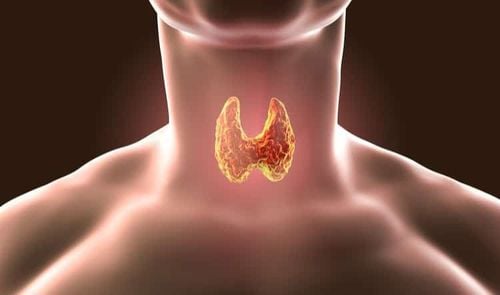
3. Pathogenesis
Hashimoto's thyroiditis is an autoimmune disease, with a combination of cellular and humoral immunity that damages thyroid cells.Cellular immunity + Thyroid cells become self-antigens, expressed on the surface of cells. Antigens react with specific antibodies, immune cells, and complement, causing destruction of thyroid cells. Antibodies in Hashimoto's thyroiditis include: anti-thyroglobulin (Tg Ab), anti-Thyroid peroxidase antibody (TPO Ab - also known as anti-microsomal antibody) and anti-TSH receptor antibody (TSH-R Ab). .
+ Immune cells abnormally proliferate a subline of T lymphocytes. There are two factors contributing to this proliferation: genetic factors and environmental factors (viral, metabolic...). The proliferating accessory T lymphocytes will act on the autoantibody-producing B lymphocytes (by association) and the destroying T lymphocytes (Lymphocytes T tueur) to directly attack and destroy the thyroid cells. Humoral immunity: Activation of B lymphocytes by accessory T cells leads to proliferation and differentiation of B lymphocytes into plasma cells. These plasma cells are capable of producing antibodies against thyroid components.
4. Diagnosis
4.1. Clinical Depending on the stage, there may be symptoms of hyperthyroidism, euthyroidism or hypothyroidism. Clinically, about 20% of patients are usually in the hypothyroid stage, only less than 5% of the cases are in the hyperthyroid stage.
There are 2 groups of symptoms:
+ Symptoms of goiter: most goiters are large, firm, symmetrical and usually painless. In about 10% of cases, the thyroid gland is atrophied. The enlarged thyroid gland can compress causing a feeling of choking in the neck, difficulty swallowing, hoarseness.... If thyroiditis is left untreated for a long time, it can be seen that the thyroid gland is enlarged, firm, sometimes hard, with a rough surface. rough, with many lobes. The thyroid is painless to palpation and there are no enlarged lymph nodes in the neck.
+ Symptoms of hypothyroidism: Hashimoto's thyroiditis progresses gradually over several years and causes thyroid damage, causing thyroid hormone levels to gradually decrease leading to hypothyroidism. This is a syndrome characterized by a condition in which the thyroid gland does not produce enough thyroid hormone compared to the body's needs, causing damage to tissues, organs, and metabolic disorders. Patients with signs and symptoms of hypothyroidism include:
Sensitivity to cold temperatures; Increased cholesterol levels in the blood; Constipation; Difficulty concentrating; Depression; Dry skin; Goiter formation; Edema in the face; Tired; Prolonged menstruation in women; Muscle pain; pale skin; Stiffness in joints, especially hands and feet; The voice becomes hoarse; Uncontrolled weight gain.
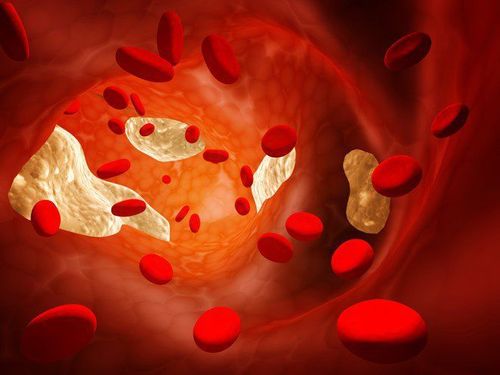
4.2. Subclinical thyroid function test: depending on the progression of thyroiditis, the patient may be in mild hyperthyroidism, euthyroidism, but usually obvious hypothyroidism: FT3, FT4 decreased, TSH increased or subclinical hypothyroidism with FT3, FT4 within normal limits, TSH increased. Thyroid function test specifically shows some important parameters of the thyroid gland such as TSH, total T4, FT3, TSI. These indicators help doctors diagnose and provide appropriate treatment for thyroid disease.
Vinmec International General Hospital is one of the hospitals that not only ensures professional quality with a team of leading medical doctors, a system of modern equipment and technology. The hospital provides comprehensive and professional medical examination, consultation and treatment services, with a civilized, polite, safe and sterile medical examination and treatment space. Customers when choosing to perform tests here can be completely assured of the accuracy of test results.
Please dial HOTLINE for more information or register for an appointment HERE. Download MyVinmec app to make appointments faster and to manage your bookings easily.
Anti-thyroid antibodies: increased titer of anti-thyroid antibodies Anti thyroid peroxidase (Anti-TPO) is positive in 90% of cases, anti-thyroglobulin antibody is increased in 20-50% of cases of Hashimoto's thyroiditis. Ultrasound: hypoechoic thyroid gland, may show hypercirculatory images, the image changes depending on the stage of the disease. The size of the thyroid gland may be enlarged. Measurement of concentration I131 : uneven concentration, not significant in diagnosis. Thyroid cytology: performed in cases of Hashimoto's thyroiditis with nodules in the gland to rule out lymphoma or thyroid cancer.5. Treatment
Patients with an enlarged thyroid or hypothyroidism will need thyroid hormone compensation. LT4 is taken every day, and the dose is adjusted according to age, weight, severity of the condition and health problems, especially during pregnancy, as well as use of other medications.
Patients with cardiovascular disease or severe hypothyroidism will need to start LT4 at a low dose and increase it gradually.
+ Obvious hypothyroidism: replace treatment with LT4 at a dose of 50-100 μg/day, adjust the dose accordingly for each patient.
+ Subclinical hypothyroidism: Depending on the patient's condition and clinical symptoms. Usually start LT4 when TSH is > 10 μu/ml. When TSH is less than 10 μu/ml, anti-TPO antibodies are high, 80% of patients will have hypothyroidism.

When the thyroid gland is enlarged and the thyroid function is still within normal limits, LT4 is also indicated to reduce the size of the thyroid gland (because LT4 can make the thyroid gland smaller) and prevent progression. to hypothyroidism.
Increased TSH in women who are pregnant or planning to become pregnant must also be treated with LT4.
Corticosteroids are not indicated because they have no effect on disease progression.
6. Disease monitoring
Hashimoto's thyroiditis can coexist with Graves' disease or in combination with other autoimmune diseases, so it is necessary to screen for comorbidities
Patients with Hashimoto's thyroiditis should have their thyroid function checked annually. Special attention should be paid during pregnancy and lactation.
Please dial HOTLINE for more information or register for an appointment HERE. Download MyVinmec app to make appointments faster and to manage your bookings easily.







